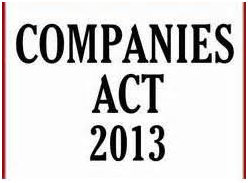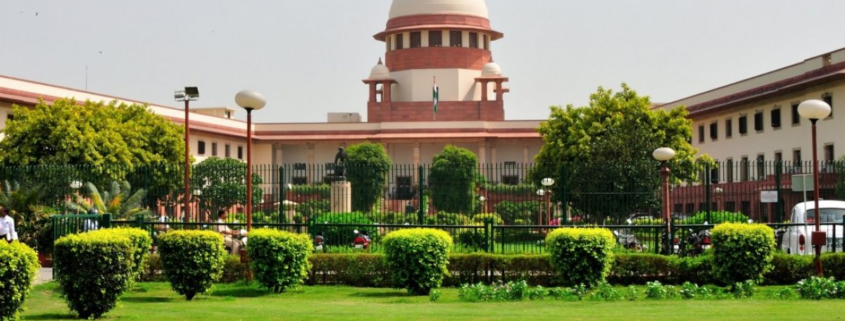Ratan Tata vs Cyrus Mistry
Legal Battle between Ratan Tata and Cyrus Mistry
The Supreme Court on 26th of March 2021, approved the decision by Tata Sons Ltd to remove Cyrus Pallonji Mistry as its Executive Chairman and Director in 2016 and also overturned the National Company Law Appellate Tribunal (NCLAT) order that quashed the conversion of Tata Sons into a private company from a public company. The 3-judge bench of SA Bobde, CJ and AS Bopanna and V. Ramasubramanian, JJ has upheld the removal of Cyrus Mistry as Chairman by the Tata Sons and has also answered all questions in favour of Tata Sons. The Court said that NCLAT has, by reinstating Mistry without any pleading or prayer, “has forced upon the appellant an Executive Chairman, who now is unable to support his own reinstatement.”
The Court said,
“The relief of reinstatement granted by the Tribunal, was too big a pill even for the complainant companies, and perhaps Cyrus Mistry, to swallow.”
The dispute
From 25.06.1980 to 15.12.2004 Shri Pallonji S. Mistry, the father of Cyrus Pallonji Mistry was a Non-Executive Director on the Board of Tata Sons. On 10.08.2006 Cyrus Mistry was appointed as a Non¬Executive Director on the Board and by a Resolution of the Board of Directors of Tata Sons dated 16.03.2012, Mistry was appointed as Executive Deputy
Tata Consultancy Services v. Cyrus Investments Pvt. Ltd. & Ors. ; Civil Appeal NOs. 440-441 of 2020.
Tribunal ruling is Overturned, SC backs Tata decision to sack Cyrus Mistry. (2021, March 26). Retrieved March 30, 2021, from https://indianexpress.com/article/india/ratan-tata-cyrus-mistry-supreme-court-7247192/
Chairman for a period of five years from 01.04.2012 to 31.03.2017, subject however to the approval of the shareholders at a General Meeting.
He was then designated as the Executive Chairman with effect from 29.12.2012, even while designating Ratan Tata as Chairman Emeritus. On 24.10.2016, the Board of Directors of Tata Sons replaced Mistry with Ratan Tata as the interim Non-Executive Chairman. Mistry was replaced only from the post of Executive Chairman and it was left to his choice to continue or not, as Non¬Executive Director of Tata Sons.As a follow up, certain things happened and by separate Resolutions passed at the meetings of the shareholders of Tata Industries Limited, Tata Consultancy Service Ltd. and Tata Teleservices Ltd., Mistry was removed from Directorship of those companies.
Mistry then resigned from the Directorship of a few other operating companies such as the Indian Hotels Company Limited, Tata Steel Limited, Tata Motors Limited, Tata Chemicals Limited and Tata Power Company Limited, after coming to know of the impending resolutions to remove him from Directorship.
Thereafter, 2 companies by name, Cyrus Investments Private Limited and Sterling Investment Corporation Private Limited, in which CPM holds a controlling interest, filed a company petition before the National Company Law Tribunal under Sections 241 and 242 read with 244 of the Companies Act, 2013, on the grounds of unfair prejudice, oppression and mismanagement.
Relevant Provisions under the Companies Act 2013

Section 241 of the Act provides that any member of a company can make an application for seeking relief to the NCLT in case of oppression and mismanagement. Section 244 prescribes the shareholders qualifications required to make an application under section 241. Section 244 provides that in the case of a company having a share capital, at least one hundred members or members constituting one-tenth of the total number of its members, whichever is less, or any member or members holding not less than one-tenth of the issued share capital of the company, subject to the condition that the applicant or applicants has or have paid all calls and other sums due on his or their shares, can make an application to the NCLT alleging oppression and mismanagement. Further, in case of a company not having a share capital, at least one-fifth of the total number of its members are required to make an application under section 241 of the Act.
244 further gives NCLT the power to waive all or any of the requirements specified in section 244 so as to enable the members to make an application under section 241.
Section 242 gives the power to the Tribunal to give an order to regulate the conduct of affairs of the company in future, the purchase of shares, restriction on the transfer of the share, termination, setting aside or modification of any agreement, setting aside of any transfer, delivery of goods, payment, execution or other act relating to property, removal of managing director, manager, or any of the directors of the company, recovery of undue gains made by any managing director, manager or director during the period of his appointment as such and imposition of costs as may be deemed fit.
Supreme Court on NCLAT’s order to reinstate Mistry
Overruling the NCLAT decision to reinstate Mistry, who was removed as Executive Chairman by the board of Tata Sons on October 24, 2016, the bench said his removal happened for “valid and justifiable reasons” and could not be termed as “oppressive or prejudicial in law”. The following words at the end of sub¬section (1) of 242 “the Tribunal may, with a view to bringing to an end the matters complained of, make such order as it thinks fit” cannot be interpreted a conferring on the Tribunal any implied power of directing reinstatement of a director or other officer of the company who has been removed from such office.
“These words can only be interpreted to mean as conferring the power to make such order as the Tribunal thinks fit, where the power to make such an order is not specifically conferred but is found necessary to remove any doubts and give effect to an order for which the power is specifically conferred.”
Hence, the architecture of Sections 241 and 242 does not permit the Tribunal to read into the Sections, a power to make an order (for reinstatement) which is barred by law vide Section 14 of the Specific Relief Act, 1963 with or without the amendment in 2018.
Further, NCLAT appears to have granted the relief of reinstatement gratis without any foundation in pleadings, without any prayer and without any basis in law, thereby forcing upon the appellant an Executive Chairman, who now is unable to support his own reinstatement.
Not just this, but NCLAT has gone to the extent of reinstating Mistry not only on the Board of Tata Sons, but also on the Board of Tata group companies, without they being parties, without there being any complaint against those companies under section 241 and without there being any prayer against them. These companies have followed the procedure prescribed by Statute and the Articles and they have validly passed resolutions for his removal.
Impact on Corporate Governance
This judgement has put a lid on the most publicly and fiercely contested corporate war but will also have ramifications for corporate governance issues and have profound impact on corporate governance jurisprudence as it restricts the scope of the Court’s interference in the corporate decision-making process and allows decision-making based on the majority in the Board. The Supreme Court verdict affirms some of the fundamentals of corporate governance, including the supremacy of charter documents, autonomy and independence of the board and the rights of private companies and shareholders to govern their relationship.









 Users This Year : 15779
Users This Year : 15779
Leave a Reply
Want to join the discussion?Feel free to contribute!